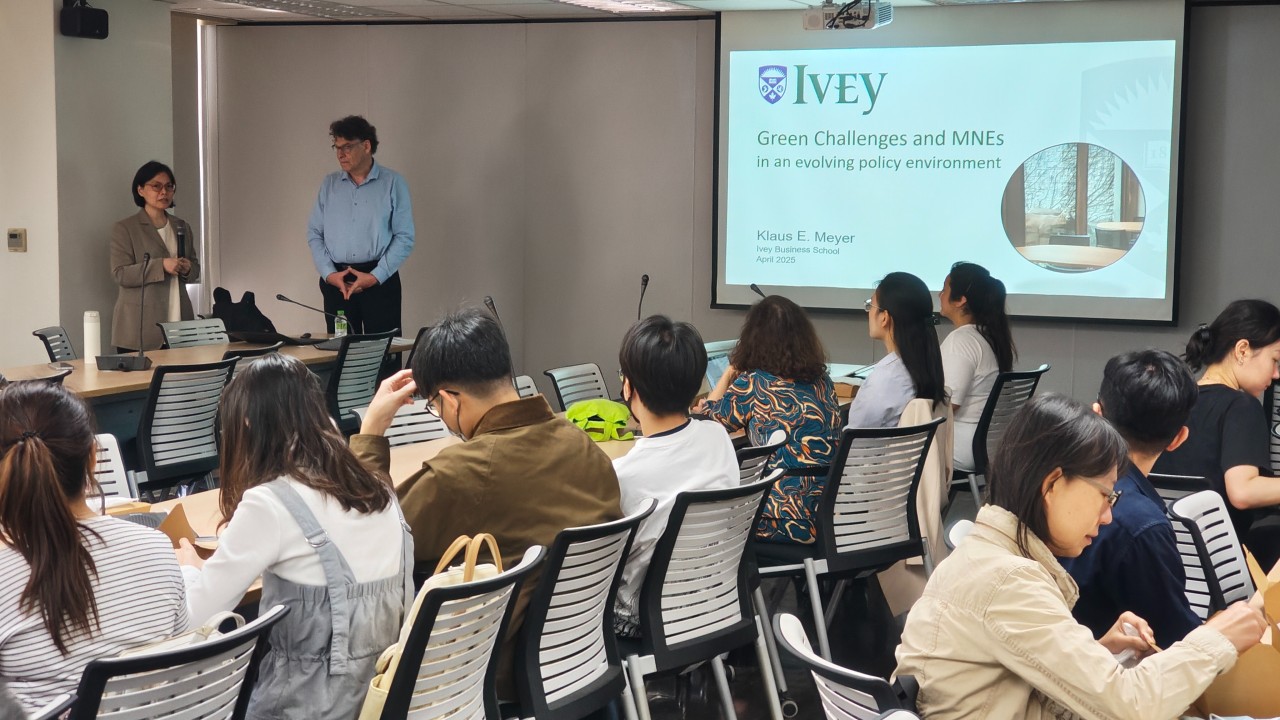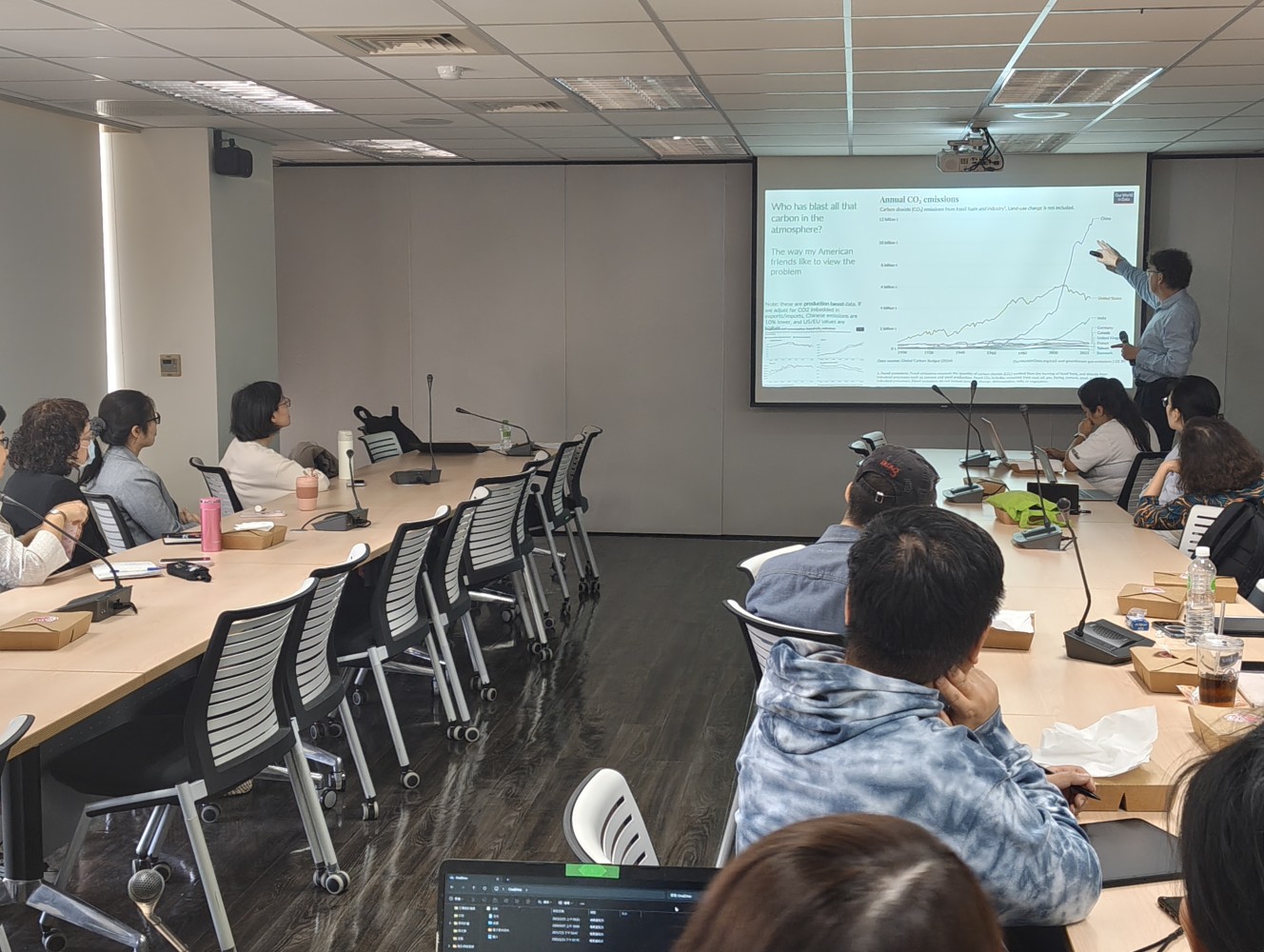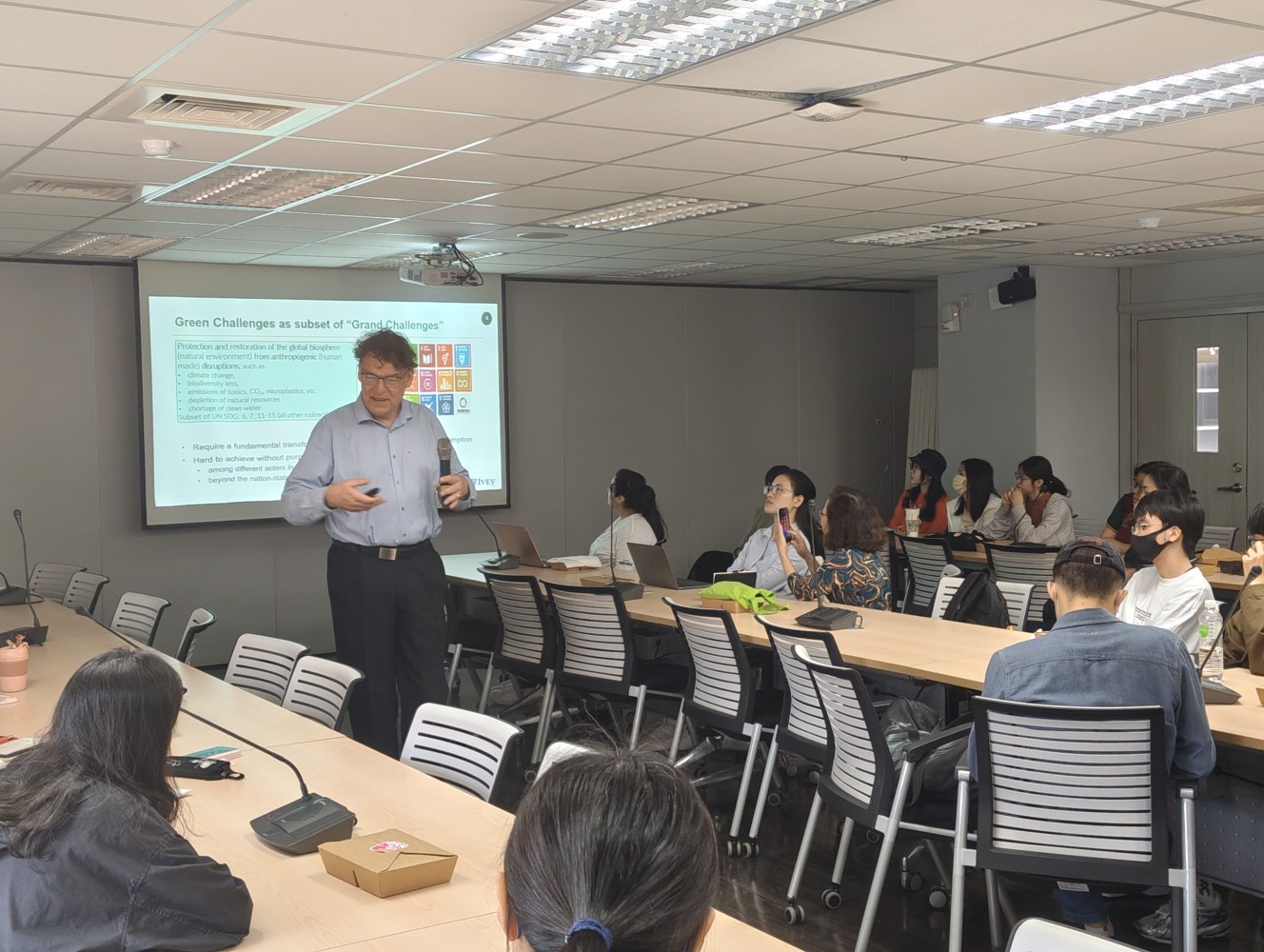Professor Meyer’s presentation centered on the defining characteristics of a global leader and the crucial inquiries multinational enterprises (MNEs) should consider to effectively address green challenges through advocacy for policy changes and operational adjustments.

Prior to addressing the core tenets of the talk, Professor Meyer provided a preliminary overview of various drivers of global warming, illustrated through diverse datasets identifying major polluting nations, each predicated on distinct metrics. Different metrics underscore the potential for data politicization in impeding or instigating policy reform.The presentation highlighted that the identification of the foremost polluting nations varies significantly based on the analytical parameters employed, such as cumulative emissions, per capita emissions, and annual emissions.
To address these complexities, Professor Meyer proposed a pragmatic, albeit sub-optimal, approach: the implementation of novel industrial policies aimed at bolstering national capabilities in sectors deemed critical for mitigating diverse green challenges. Illustrative examples mentioned were the industrial policy enacted by the United States in 2022 and Volkswagen’s establishment of a battery manufacturing facility in Canada. These instances exemplify governmental strategies that foster businesses poised to address carbon emissions and energy-related concerns.

Professor Meyer elucidated the complexities inherent in confronting environmental challenges by presenting contrasting scenarios: that of the optimist versus the realist. From a general standpoint, the optimist posits the availability of sufficient resources and incentives to effectively facilitate an energy transition from conventional fossil fuels, such as natural gas and oil, towards modernized alternative energy sources like solar and wind power. Conversely, the realist acknowledges the substantial incentives that may dissuade companies from investing in a transition to novel energy paradigms. Analogous dilemmas are evident in the debates surrounding the “linear resource economy” versus a “circular economy.” Professor Meyer employed these optimist/realist perspectives to again underscore the dualistic roles of MNEs and governments in shaping policy and proposing actional solutions to mitigate global warming.
In concluding his presentation, Professor Meyer delineated potential avenues for future scholarly inquiry, encompassing investigations focused on multinational enterprises, policymakers, or the actions of individual agents. Research could explore policy modifications that realign incentives or examine the impact of natural disasters in reshaping awareness of environmental risks and thereby compelling alterations in business policies and operational practices.

In delivering an insightful and illuminating presentation, Professor Klaus Meyer drew upon his extensive background and considerable experience to elucidate the challenges and potential resolutions for multinational enterprises and governments in formulating more effective policies and fostering improved practices aimed at diminishing carbon emissions while simultaneously enhancing business performance.



